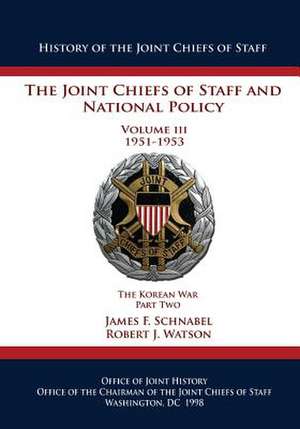The Joint Chiefs of Staff and National Policy
Autor James F. Schnabel, Robert J. Watsonen Limba Engleză Paperback
Preț: 165.19 lei
Nou
Puncte Express: 248
Preț estimativ în valută:
31.61€ • 32.94$ • 26.17£
31.61€ • 32.94$ • 26.17£
Carte disponibilă
Livrare economică 13-27 martie
Preluare comenzi: 021 569.72.76
Specificații
ISBN-13: 9781482623253
ISBN-10: 1482623250
Pagini: 368
Dimensiuni: 178 x 254 x 19 mm
Greutate: 0.64 kg
Editura: CREATESPACE
ISBN-10: 1482623250
Pagini: 368
Dimensiuni: 178 x 254 x 19 mm
Greutate: 0.64 kg
Editura: CREATESPACE
